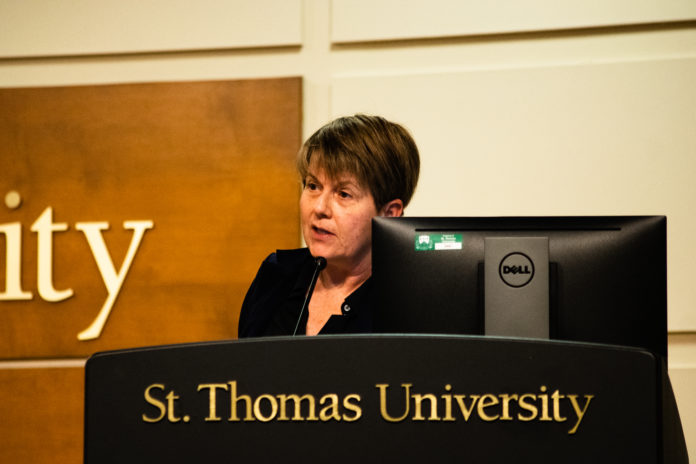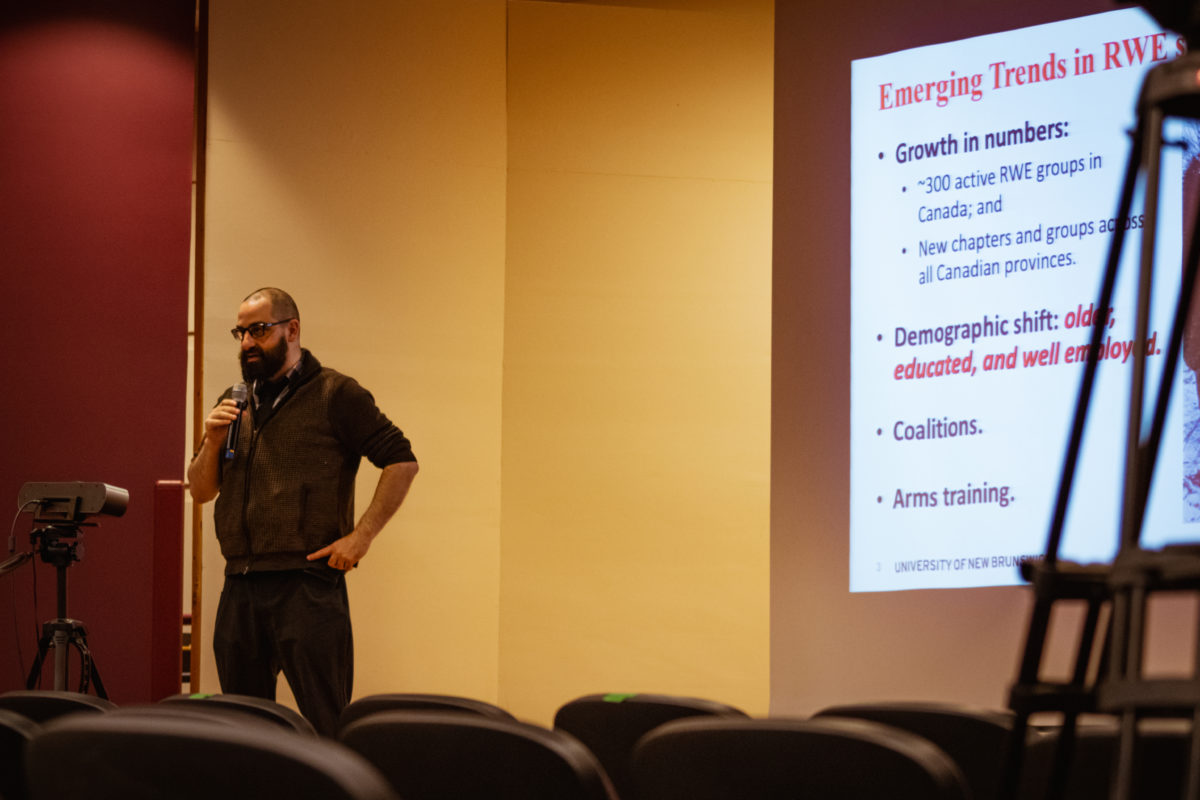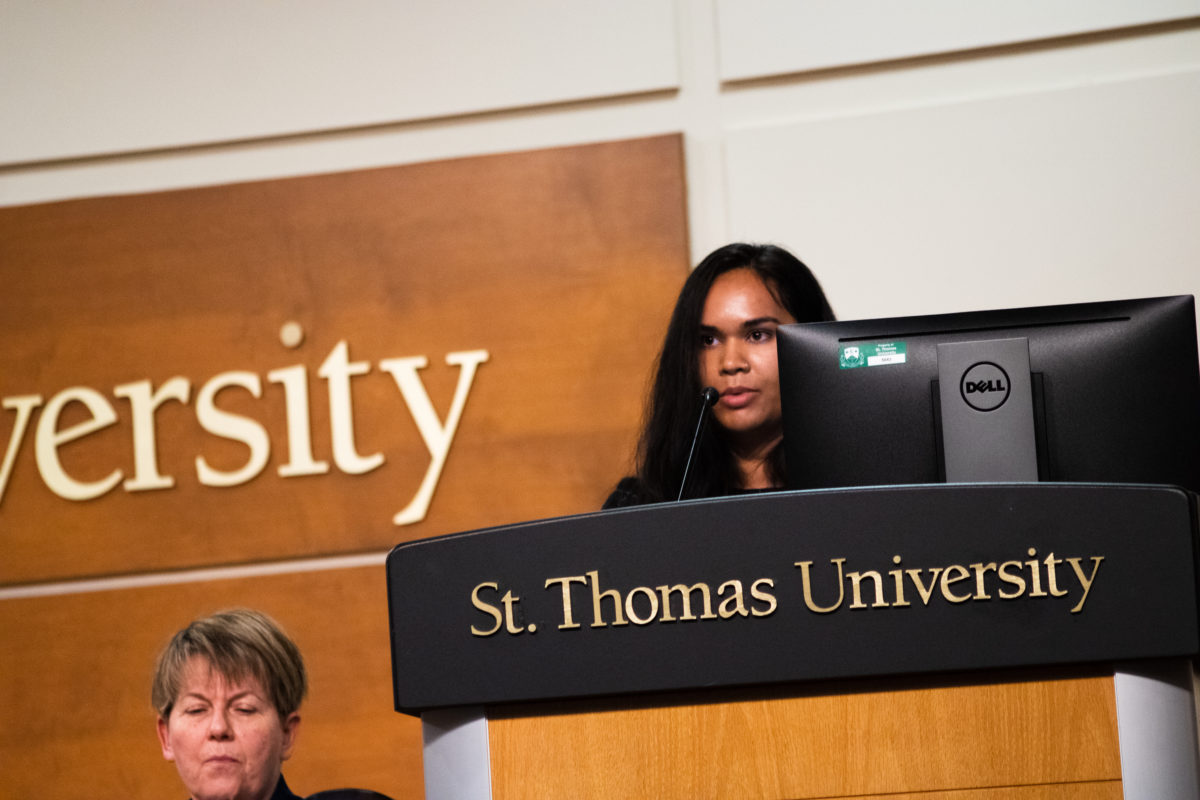
Please note: This story was updated on Nov. 23 to more accurately represent the information provided in Allyson Lunny’s keynote.
St. Thomas University’s annual endowed chair in criminology and criminal justice lecture happened on Nov. 15 in the Kinsella Auditorium. This year’s symposium theme was Interrogating Hate: From Minassian to the Military.
Allyson Lunny, associate professor in the law and society program at York University and the 2021 endowed chair in criminology and criminal justice at STU, was the main speaker and organizer of the event. She spoke about how hate crimes are worse than other types of crimes because they are historical, linguistic and symbolic signifiers to attack the identity of an individual.
“Note how this field of communication is structured over time, that is historically and through power relations that create and perpetuate the racist world of white power and Black subjugation,” said Lunny.
Among many of her examples is the case of Alek Minassian, who killed 11 people in the 2018 Toronto van attack. He posted a message on his Facebook talking about the “Incel Rebellion.”
“The interesting thing about this post is that there is nothing denotative or obviously hateful about the statements unless you know the language codes and history of the Incel movement,” said Lunny.

The first speaker of the night, David Hofmann, an associate professor of sociology at the University of New Brunswick, focused on right-wing extremism, home-grown Canadian terrorism and its ties to the military.
“There is an intersection between right-wing extremists’ desire to either recruit or gain specialized knowledge from individuals in the military and the military’s desire to weed out and prevent that from happening,” he said.
Hofmann and his student’s research show the nexus between the military and right-wing extremism, with the Canadian Rangers being particularly susceptible to these ideologies.
“It hasn’t anything to do with the [Canadian] Rangers itself and more of the circuit socio-political, cultural and geographic locations that play a role in creating a more fertile environment for regular extremism,” said Hofmann. “There’s less oversight than you would find in the regular forces.”

Arunita Das, a PhD candidate in socio-legal studies at York University, was the second speaker of the symposium. She spoke about hate speech among far-right political activists, specifically on social media such as Twitter.
“There is an emerging discussion on the level of the hate speech on social media,” said Das. “A lot of those people use social media to facilitate the growth of online hate and they find it more of an accessible platform to reach wider audiences.”
